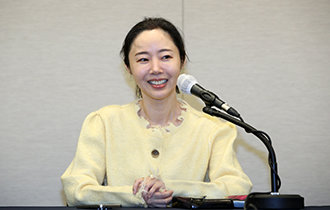Manufacturing Industry Is Worried about Aftermath of Korea Renunciation
Manufacturing Industry Is Worried about Aftermath of Korea Renunciation
Posted August. 22, 2002 22:21,
Upon investigation, as the domestic manufacturing companies have found investment
and have advanced into foreign markets, a socialization of the domestic industry will
progress rapidly.
As the result of the online survey for 4313 manufacturing companies conducted by Korea Institute for Industrial Economics & Trade (KIET) on August 22, 20% of total companies answered We have made the overseas investment and 26% answered We will plan to make the overseas investment. 47% of total companies answered We will reduce or stop the domestic production after foreign investment. However, 30% answered We will maintain the present state.
It indicated that companies have gone into the overseas for the field market launch and
the expense decrease as causes. Also, there are unnecessary restriction of Korea and
the trade friction based on exports.
KIET diagnosed that there must be measures to prevent serious problems such as the employment decrease owing to Korea Escape of manufacturing companies.
Out of the surveyed companies, 66% answered we will reduce the domestic employment owing to overseas investment, but 25% answered We will maintain the present state.
As over the half of domestic companies which advanced to the foreign market, have procure the parts in Korea, there was some inductive effect. However, it is forecasted that the effect will decrease in future.
In terms of the parts procurement plan in Korea of companies which have the overseas production corporation, there are △Increase (18%) △Decrease (36%), and △Maintain the present state (38%). On the other hand, in terms of the local parts procurement, there are Increase (49%), Maintain the present state (44%) and Decrease (7%).
Areas that companies have made the overseas investment or desire the investment are
China (34%), ASEAN (25%) and North America (15%).
The investment fund of the overseas-advanced companies is raised mostly by a parent company (48%), borrowing in Korea (19%), and Korean banks (7%). The pure local procurement is just 13%.
Park, Jung-Gu, the section chief of the industrial trend analysis, KIET said As the overseas investment has increased, the companies have reduced the domestic production and employment considerably. However, the overseas investment moves up the new business field in Korea and the new demand on facilities and parts can occur from the foreign corporation.
Ja-Ryong Koo bonhong@donga.com







